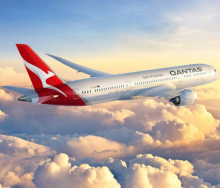Botswana’s Health Minister Dr Edwin Dikoloti has announced measures to protect the country from the highly infectious Mpox virus, including screening tests at borders.
Screening for Mpox will be conducted at the country’s two main airports, Sir Seretse Khama International in Gaborone and Maun International serving the Okavango region, as well as land borders on main trade routes including the Kazungula one-stop border post with Zambia, the Tlokweng, Martin’s Drift and Pioneer Gate crossings into South Africa and the Mamuno transit into Namibia.
The Ramokgwebane and Pandametenga border posts for Zimbabwe are excluded at this stage.
The Ngoma border post for Namibia is also excluded although disease control at Kazungula includes this crossing into Namibia’s Zambezia panhandle.
Dirt track river accessways, such as Pont Drif and Platjan across the Limpopo, are also excluded as well as Ramatlabama and Ramotswa used for cargo.
Botswana’s decision to screen for Mpox follows the World Health Organization declaring Mpox a public health emergency of international concern for the second time in two years – and the Africa Centres for Disease Control and Prevention declaring the outbreak a public health emergency of continental security the previous day (August 13).
These declarations were prompted by the emergence of a new strain (clade Ib) in the Democratic Republic of the Congo and its spread to neighbouring countries.
Southern Africa remains ‘safe and welcoming’
Meanwhile, the SADC Business Council Tourism Alliance has reiterated that Southern Africa remains a safe and welcoming destination for tourists, emphasising the region’s swift and coordinated response while highlighting the minimal risk to travellers.
Tshifhiwa Tshivhengwa, Chairperson of the SADC Business Council Tourism Alliance, said: “We take these declarations seriously and commend the proactive approach of global and regional health authorities. However, it’s crucial to understand that the risk to travellers in Southern Africa remains low. Our member countries are implementing robust measures to manage and mitigate any potential spread of the virus”.
SADC member states have responded swiftly to the situation, he said.
The SADC Business Council Tourism Alliance clarified several points on its Mpox position and travel to Southern Africa:
- Low risk for tourists: The risk of Mpox transmission in Southern African countries remains lower than in many traveller source markets. Typical tourist activities do not put travellers at high risk of contracting Mpox.
- No travel restrictions: To date, there are no widespread travel restrictions related to Mpox for Southern African countries. Only Canada has issued a level 2 advisory, simply recommending realistic precautions.
- Safe tourist activities: Safari and wildlife viewing activities are safe. There is no increased risk of Mpox transmission in forests or around wildlife.
- Proactive management: SADC member states have implemented surveillance, contact tracing and treatment protocols to effectively manage potential Mpox cases.
- Economic importance of tourism: Tourism is vital for our economies and conservation efforts.
“We encourage travellers to maintain their plans to visit our region while staying informed about health guidelines,” said Tshivhengwa.














